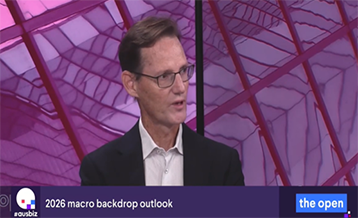News and Insights
Report
Despite a range of risks investment markets have performed strongly over the last three years supported by resilient global economic growth, AI driven earnings growth and, more recently, interest rates cuts.
Report
Despite higher-than-average equity market valuations, strong earnings growth should provide for moderate gains.
Report
The RBA held rates steady at 3.6% over the quarter but shifted more hawkishly as the quarter progressed post higher than expected inflation.
Report
2026 looks set for global economic growth to remain broadly resilient supporting equity markets earnings growth.
More than $1 million has been committed to support vital Australian research into Myalgic Encephalomyelitis / Chronic Fatigue Syndrome (ME/CFS), with three new research projects to commence in 2026.
Report
Global equity markets closed the year strongly amid monetary easing, fiscal support, AI-driven growth, weaker USD, and resilient earnings. Notably, the strength was broad-based spanning U.S., Europe, UK, and emerging markets with cyclical, tech, and commodity-linked sectors benefiting most.
Video
Watch our own Investment Specialist Grant Mundell speak with Ausbiz about the latest market news and updates.
Report
ASX 200 rose 1.3% in December, taking the total return for 2025 to +10.3%. Australian equities outperformed Global Equities (MSCI World ex Australia) which fell 0.9% (in $A terms).
As the festive season approaches, more Australians are seeking meaningful, lasting ways to celebrate, shifting away from the commercial rush and instead embracing the spirit of giving back
Video
Get that latest market news and updates from our own Chief Investment Officer, Darren Thompson.









